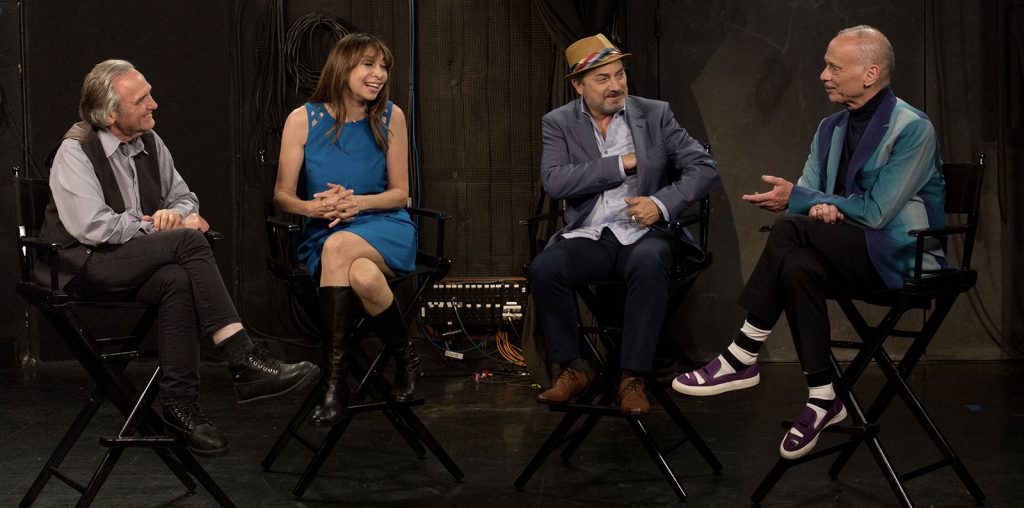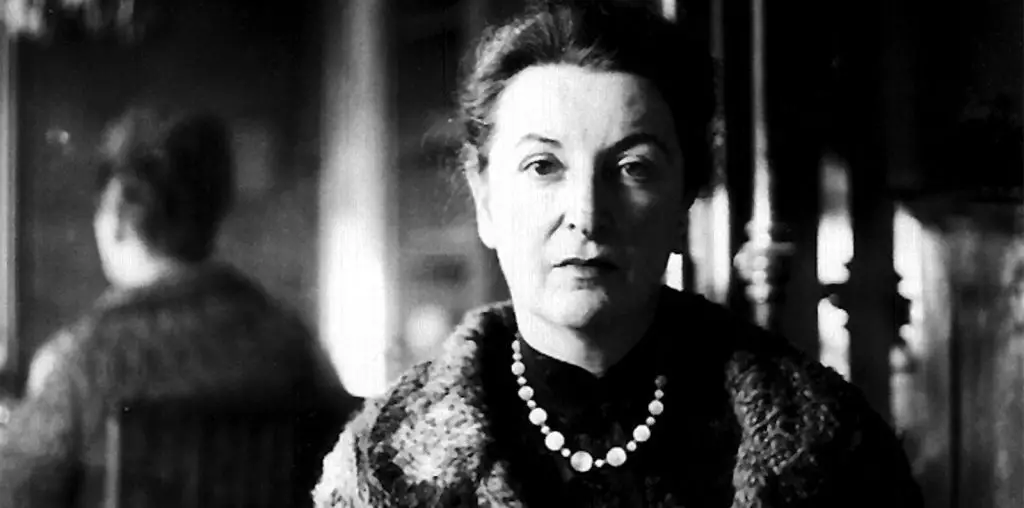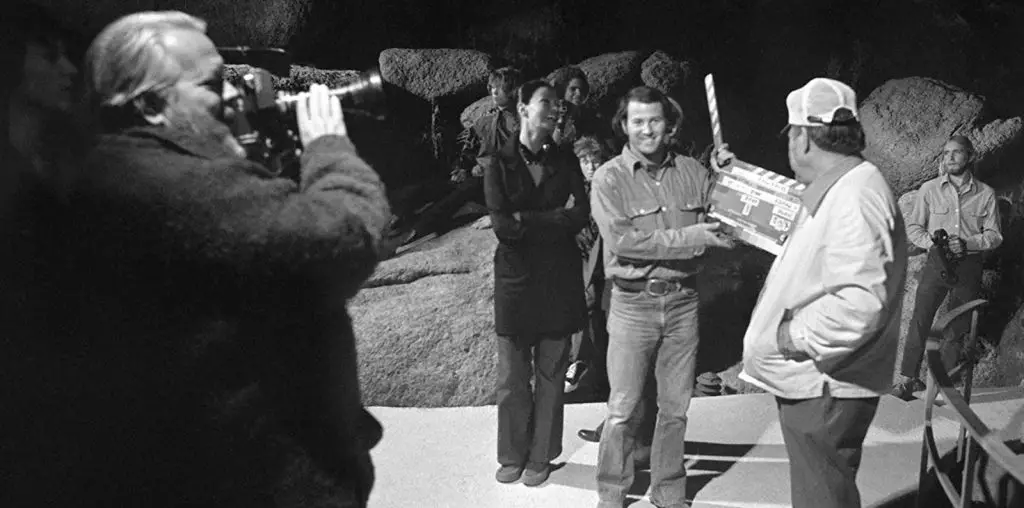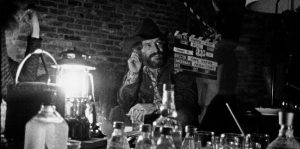
AFI FEST 2020 REVIEW! In 2018, a previously unreleased film by the legendary auteur Orson Welles was finally brought forth into the world. The Other Side of the Wind is a hell of a movie that takes on the American cinematic revolution of the ’60s and ’70s while also telling a semi-autobiographical tale about Welles, manifested as Jake Hannaford, portrayed by another legendary filmmaker, John Huston. Dennis Hopper, one of the many stars in the film, appears in short bursts of conversation around the fireside. The full discussion was edited together into Hopper/Welles.
For this conversation, Welles recorded a two-hour interview where he is seated off-camera and is supposed to be Jake Hannaford. Hopper is sitting with Janice Pennington and Glenn Jacobson around a fire, drinking a lot. Welles jokes to someone on set that Hopper needs to be “constantly plied with liquor.” What follows is a fascinating conversation between two cinematic heavyweights. This takes place around the time Hopper was filming The Last Movie and was riding the high of his massively successful directorial debut, Easy Rider. The conversation starts innocently enough, with Welles asking Hopper about his career and his thoughts on filmmaking. As it goes on, Welles keeps trying to get Hopper to make a statement about his political beliefs, and he won’t directly.
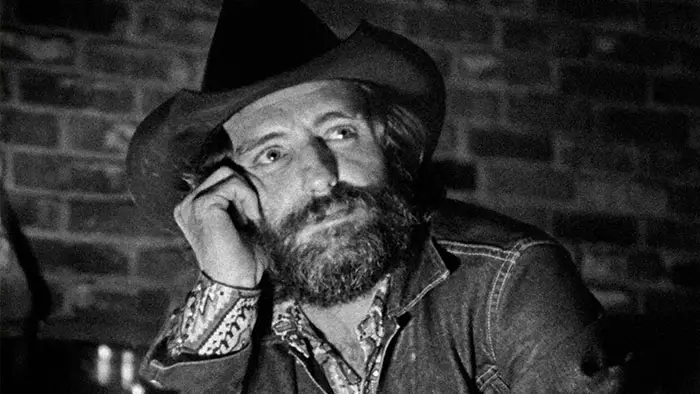
“…a two-hour interview…with Welles asking Hopper about his career…”
As you can imagine, since we have two directors sitting there, many films are mentioned, including Last Year at Marienbad, La Notte, I, Vitelloni, Paths of Glory, and A Place in the Sun. There is also a lot of talk about what it means to Hopper to be a director and the things he likes and hates about it. Because Orson Welles is Orson Welles, we end up getting his opinion on things too. Welles says that “directors have got to get closer to poetry and further from creation” and “The director ought to be a poet and a magician rather than a god.” This conversation goes into heady, deep places.
There is a part where Welles asks Hopper about how he feels when people insult him and falsify information about him in the tabloids. He says that to get angry, “It takes a confrontation…this guy told me he’d stolen things, and when I confronted him about it, he said I was making a bad movie, and I put his head through a coffee table.” He continues, “There’s an area of me that’s a very violent area.” This makes sense considering the many stories I have heard and read (specifically in Easy Riders, Raging Bulls by Peter Biskind) about Hopper’s sometimes violent nature. Welles goes into his contempt for actors by saying, “Actors aren’t people. They’re a third sex, and the trouble is there’s a little actor in every civilian.” He also says something that historically we know to be true now, that Alfred Hitchcock hated actors, although Welles refers to him as Hitch.
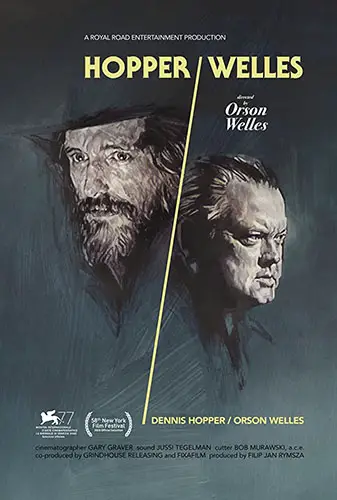
"…Welles jokes to someone on set that Hopper needs to be 'constantly plied with liquor.'"
